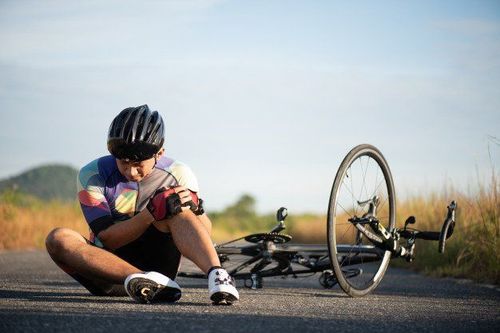This is an automatically translated article.
Although cycling has many health benefits, too much exercise can lead to great harm to the body.1. Excessive cycling can harm you
Overtraining syndrome (often abbreviated as OTS), a time when the body suffers more during exercise than it can repair, is a real concern for runners. bikers - especially those with high goals. “This is very common in endurance athletes,” says Dr. Frank Wyatt, professor in the department of athletic training and physiology at Midwestern State University in Wichita Falls, Texas. “In fact, when most athletes hit their peak, they're on the brink of overtraining.” Staying on the sidelines is one thing; however, if you slip and fall into the abyss of OTS, it can be a long and arduous way to get you back in shape.OTS is marked by many subtle biomarkers, and a common symptom is decreased exercise efficiency. For many riders, noticing a dip in speed or endurance is a sign you have OTS.
2. Effects of excessive cycling
2.1 Do you have insomnia?
If you're starting to have trouble sleeping, toss and turn at night, or wake up feeling more tired than when you went to sleep, it could be a sign you're working out too hard. While research is mixed on whether a day of hard training affects sleep, it's clear that overtraining has an effect on sleep.2.2 Your heart rate changes drastically
In 2013, Wyatt published a meta-analytical review of research on OTS and found several studies reporting suppressed heart rate as a symptom of overtraining. However, he noted in his review that this finding contradicts what previous reviews have found — that an increased heart rate is actually a sign of overtraining. The bottom line is that you should monitor your heart rate when you feel good so you have a baseline. If you see a big shift — faster or slower while resting — it could be a sign that you need a break.2.3 You give up easily
If you have a power meter, this is where its data becomes especially useful. “Three hundred watts is 300 watts,” says Allen, which means that if you can normally climb a hill near a 300-watt home but you've been struggling to hit 250 watts lately, maybe you need a day. rest. For those who don't have a meter, Bicycling's workout log or the log of your choice may be a suitable alternative.2.4 You get sick easily
“One of the biomarkers for overtraining is a suppressed immune system,” says Wyatt. We know that exercise in general causes a brief suppression of the immune system shortly thereafter, but then the immune system is strengthened. But when you over-train, your immune system starts to weaken. Anything from a lingering cold to a road rash or a cut that won't heal can be a sign that your body is overworked and struggling to repair itself."2.5 Decreased eating and drinking
Athletes are usually an avid bunch, but Wyatt says overtraining can change that. “If you're burning calories, you should be hungry. If you're not hungry, it's a sign that you may be overtraining."2.6 You are prone to injury

Chấn thương là điều khó tránh khỏi khi vận động thể thao
2.7 Blood test
Wyatt says certain biomarkers can indicate overtraining — like decreased testosterone and hemoglobin — but you need blood tests (and a good baseline) to use markers correctly this biology. And since overtraining syndrome has so many signs that don't need a needle, it's probably easier to just watch for sleep disruptions and changes in appetite.
Also, know that a bad day doesn't mean you've been overtrained. In fact, cycling coach Matt McNamara, of Sunnyvale, California, says that it's really hard to end overtraining if you're cycling less than 15 hours a week. However, it can still happen — especially if you go out and exercise every day.
By all means avoid the trap of “I only have 90 minutes to ride, so I better do my best”. McNamara says that repetitive training will only leave you mentally exhausted and depressed. To make things interesting, add in intervals of different lengths and intensities. “I really try to keep things varied for my athletes,” he says, adding that he also allows athletes to make edits to any exercise. what if they don't feel that way. "I tell my athletes that if they don't feel they can train, it's better to be cautious than wrong."
If you have actually reached the OTS score, it can take a surprisingly long time to resolve your issue. Traditional wisdom is at least how many weeks of rest you'll need once you've experienced OTS symptoms, "But that hasn't been shown in research, and because we're such a diverse species, it's difficult to to say this will happen,” says Wyatt. However, he says that two or three weeks of complete rest is usually the minimum amount of time you need to recover. And if you're seriously overtraining, it's not uncommon for it to take you up to a year to really get your spirits up.
Article referenced source: bicycling.com













